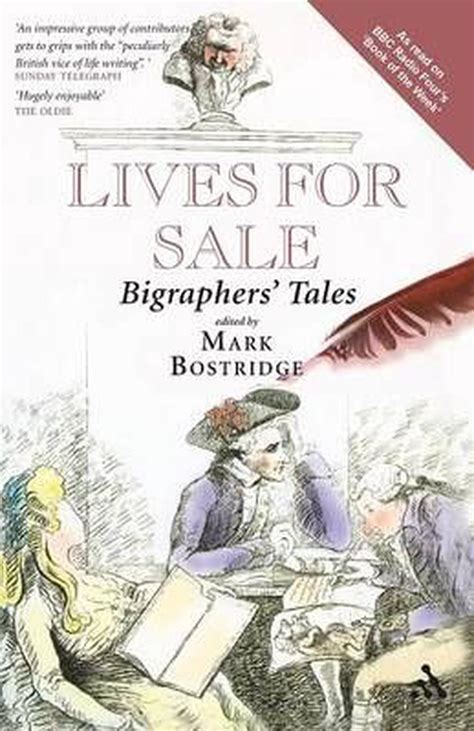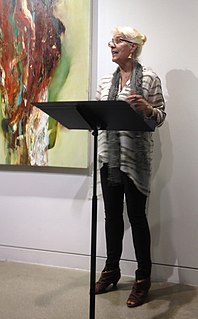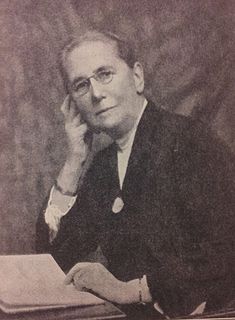Top 830 Passage Quotes & Sayings - Page 14
Explore popular Passage quotes.
Last updated on April 16, 2025.
When my father finally got around to teaching me to drive, he was impressed at my "natural" talent for driving, not knowing that I had already been secretly driving my mother's car around the neighborhood. When I took the test and got my license and my father gave me my own set of keys to the car one night at dinner, it was a major rite of passage for him and my mother. Their perception of me had changed and was formally acknowledged. For me the occasion meant a private sanction to do in public what I had already been doing in secret.
I didn't really had a good answer, as so often -- is me. But then somebody sent me the other day, Isaiah 49:16, and you need to go home and look it up. Before you look it up, I'll tell you what it says though. It says, hey, if it was good enough for God, scribbling on the palm of his hand, it's good enough for me, for us. He says, in that passage, 'I wrote your name on the palm of my hand to remember you,' and I'm like, 'Okay, I'm in good company.'
The model for our early bankruptcy laws was Deuteronomy, the idea that, under certain circumstances - in Deuteronomy, it is simply the passage of seven years' time - people are released from debt, simply because they are released from debt. No more debt. You start over again. This has been a very powerful model in this country. It's being destroyed now. People talk about how much new employment, new wealth, and so on are continuously generated in this country.
Some spiritual traditions view the moment of birth as a passage from a state of wholeness and knowledge to a state of forgetting. In this view of the world, we spend the rest of our lives searching for wholeness and knowledge, wellness and health-the balance and harmony we lost when we were born. If our wholeness is interrupted, then our health suffers, and we need to find a way to restore our sense of meaning. When we move in the direction of that meaning, we're healing.
We dress our garden, eat our dinners, discuss the household with our wives, and these things make no impression, are forgotten next week; but in the solitude to which every man is always returning, he has a sanity and revelations, which in his passage into new worlds he will carry with him. Never mind the ridicule, never mind the defeat: up again, old heart! — it seems to say, — there is victory yet for all justice; and the true romance which the world exists to realize, will be the transformation of genius into practical power.
I was travelling with Bruce Sterling on our mutual Difference Engine tour and he became aware from the experience of travelling with me that I would distinguish among the shoes in a perfectly normal fashion, but form him it was a revelation. There's a very lyrical passage in Holy Fire about old wealthy European men and their shoes, and how beautiful their shoes are, and how there have never been shoes as beautiful. I think that that was probably as close as Bruce will ever get to homage in my direction. I made him aware of footwear fashion.
Myth is the practical metabolism of our soulish life, the logic of our obsessions and oversights for which we have no language or code. Myth is the "morality" that the ineffable puts upon us, our unaccountable imperatives, our inexplicably selective clarity and obscurity, the mortal one-sidedness of our talents and wits, the passion and apathy that make such a transient passage through our hapless minds; that weave a pattern of fatality others will see before we do. Myth is distinctively human or sublime higher-order instinct, the "reason" in culture that reason knows not of.
The river itself portrays humanity precisely, with its tortuous windings, its accumulation of driftwood, its unsuspected depths, and its crystalline shallows, singing in the Summer sun. Barriers may be built across its path, but they bring only power, as the conquering of an obstacle is always sure to do. Sometimes when the rocks and stone-clad hills loom large ahead, and eternity itself would be needed to carve a passage, there is an easy way around. The discovery of it makes the river sing with gladness and turns the murmurous deeps to living water, bright with ripples and foam.
On the Cross the Jesus of the Four Gospels, who was God, cried out My God, my God, why hast thou forsaken me? God cannot forsake himself, Jesus was God himself. Yet God forsook Jesus, and the latter cried out to know why he was forsaken. Any able divine will explain that of course he knew, and that he was not forsaken. The explanation renders it difficult to believe the dying cry, and the passage becomes one of the mysteries of the holy Christian religion, which, unless a man rightly believe, without doubt he shall perish everlastingly.
This is a glorious biography ... The time is ripe for a new biography of Edith Wharton of this intimacy and on this scale ... Lee the biographer pursues her subject down every winding corridor, into every hidden passage and dark corner ... Her critical exploration of Edith Whartons work is dazzlingly assured ... A feat of exhaustive research, and finely tuned to Whartons creative achievement at the same time ... [Wharton] could scarcely have failed to be impressed by ... its artistic sympathy, its sonorous depths, and its soaring conception.
Other letters simply relate the small events that punctuate the passage of time: roses picked at dusk, the laziness of a rainy Sunday, a child crying himself to sleep. Capturing the moment, these small slices of life, these small gusts of happiness, move me more deeply than all the rest. A couple of lines or eight pages, a Middle Eastern stamp or a suburban postmark . . . I hoard all these letters like treasure. One day I hope to fasten them end to end in a half-mile streamer, to float in the wind like a banner raised to the glory of friendship. It will keep the vultures at bay.
Art is created to make us, to make our passage through the world better, fruitful - and I would say that every story in the end, if it is good, tells us something. This is actually what I meant when I said a novelist is a teacher. Which is why I am constantly dealing with "didactic". Now a teacher in the sense I use it is not somebody who has the profession of standing in front of children, with a piece of chalk in his hand scribbling on the blackboard. That is not the teacher I have in mind. The teacher I have in mind is something less tangible.
The journey toward authenticity, toward becoming whole is made palpable in Maureen Seaton's Sex Talks to Girls: A Memoir. It shines its considerable light on the passage from religion toward faith, from self-medication to sobriety, from daughterhood to motherhood, from being the disembodied 'good girl' to embracing her own bad lesbian self. In crisp chapters, Seaton leads us, step-by-step, over this harrowing and blissful road, so distinct from yet so much like our own.
The famous passage from her book is often erroneously attributed to the inaugural address of Nelson Mandela. About the misattribution Williamson said, "Several years ago, this paragraph from A Return to Love began popping up everywhere, attributed to Nelson Mandela's 1994 inaugural address. As honored as I would be had President Mandela quoted my words, indeed he did not. I have no idea where that story came from, but I am gratified that the paragraph has come to mean so much to so many people.
The idea that writing about characters of another race requires a passage through a critical gauntlet, which involves apology and self-examination of an almost punitive nature, as though the act of writing race was somehow morally suspect, is a dangerous one. This approach appears culturally sensitive, but often it reveals a failure of nerve. I believe the demand that we ought to reveals a species of fascism within the left - an embrace of political correctness with its required silences, which has left people afraid to offend or take a stand.
What I mean by context is worldview - having the ancient Israelite or first-century Jew in your head as you read. How would an ancient Israelite or first-century Jew read the Bible - what would they be thinking in terms of its meaning? The truth is that if we put one of those people into a small group Bible study and asked them what they thought about a given passage meant, their answer would be quite a bit different in many cases than anything the average Christian would think. They belonged to the world that produced the Bible, which is the context the Bible needs to be understood by.
y feelings as a Christian points me to my Lord and Savior as a fighter. It points me to the man who once in loneliness, surrounded by a few followers, recognized these Jews for what they were and summoned men to fight against them and who, God's truth! was greatest not as a sufferer but as a fighter. In boundless love as a Christian and as a man I read through the passage which tells us how the Lord at last rose in His might and seized the scourge to drive out of the Temple the brood of vipers and adders.
If it is written and read with serious attention, a novel, like a myth or any great work of art, can become an initiation that helps us to make a painful rite of passage from one phase of life, one state of mind, to another. A novel, like a myth, teaches us to see the world differently; it shows us how to look into our own hearts and to see our world from a perspective that goes beyond our own self-interest.
Time's passage through the memory is like molten glass that can be opaque or crystalize at any given moment at will: a thousand days are melted into one conversation, one glance, one hurt, and one hurt can be shattered and sprinkled over a thousand days. It is silent and elusive, refusing to be damned and dripped out day by day; it swirls through the mind while an entire lifetime can ride like foam on the deceptive, transparent waves and get sprayed onto the conciousness at ragged, unexpected intervals.
Awareness born of love is the only force that can bring healing and renewal. Out of our love for another person, we become more willing to let our old identities wither and fall away, and enter a dark night of the soul, so that we may stand naked once more in the presence of the great mystery that lies at the core of our being. This is how love ripens us -by warming us from within, inspiring us to break out of our shell, and lighting our way through the dark passage to new birth.
We don't save our soul and leave our emotions and our feelings and our body and all the rest of it out. That's just a way of talking that emphasizes the soul is so fundamental that we can, in some cases, treat it as the whole person because it actually is the thing that integrates all of these aspects of the self and makes them work together. Now, I don't think we can find a passage in the Bible that says that. We have to read and study how it addresses the soul, and we then see that it is the deepest, most vital part of the human self.
Love makes the world go 'round, it's true, but lust stops the world in its tracks; love renders bearable the passage of time, lust causes time to stand still, lust kills time, which is not to say that it wastes it or whiles it aimlessly away but rather that it annihilates it, cancels it, extirpates it from continuum; preventing, while lasts, any lapse into the tense and shabby woes of temporal society, lust is the thousand-pound odometer needle on the dashboard of the absolute.
A garden is the place millions of people go to touch the earth, to smell flowers - to use some of that fabled human brain power in the cause of better participating with natural processes in the place they call home. It serves as an art project, an organic produce market, a spiritual practice, a pharmacy. It offers ongoing lessons in ecology, biology, chemistry, geology, meteorology. Gardening imparts an organic perspective on the passage of time. It bestows on its practitioners a genuine sense of admiration for the plants, the soil, the sun, the water.
We have inherited a fear of memories of slavery. It is as if to remember and acknowledge slavery would amount to our being consumed by it. As a matter of fact, in the popular black imagination, it is easier for us to construct ourselves as children of Africa, as the sons and daughters of kings and queens, and thereby ignore the Middle Passage and centuries of enforced servitude in the Americas. Although some of us might indeed be the descendants of African royalty, most of us are probably descendants of their subjects, the daughters and sons of African peasants or workers.
We have no reason to be discouraged and cast down if the religion we profess is not popular and few agree with us. We must remember the words of our Lord Jesus Christ in this passage: ‘The gate is narrow’. Repentance, and faith in Christ, and holiness of life, have never been fashionable. The true flock of Christ has always been small. It must not move us to find that we are reckoned singular, and peculiar, and bigoted, and narrow minded. This is the ‘narrow way’. Surely it is better to enter into eternal life with a few, than to go to ‘destruction’ with a great company
I try to structure albums in a pattern, like in a way where there's a motif that runs throughout or some kind of conceit that informs it in a general way. Maybe it's in a harmonic key. I like to go metastructural sometimes, like look at more than the three-minute passage and how that interacts with other pieces. And I've been increasingly interested in false starts and fraudulent beginnings, and things that don't reach their implied conclusions. I take an album and I kind of start moving things around like Jenga.
For him it was a dark passage which led to nowhere, then to nowhere, then again to nowhere, once again to nowhere, always and forever to nowhere, heavy on the elbows in the earth to nowhere, dark, never any end to nowhere, hung on all time always to unknowing nowhere, this time and again for always to nowhere, now not to be borne once again always and to nowhere, now beyond all bearing up, up, up and into nowhere, suddenly, scaldingly, holdingly all nowhere gone and time absolutely still and they were both there, time having stopped and he felt the earth move out and away from under them.
We were scripted, (although) I chose my own passage of scripture but I thought, I'm just going to add my own little thought about rain. And I said Mr. President [Donald Trump], in the Bible, rain is a sign of blessing, and it's my prayer God will bless you, your family, your administration and that God will bless the United States of America. And then I read my scripture but I wanted him to know that God always used rain as a sign of blessing.
So there are two separate tracks. One track is for the Syrian government and the opposition that is interested in a peaceful future of Syria to come together for national unity, for the political process. At the same time, it is a requirement for everybody to stop supporting the extremist groups, to stop allowing them safe passage, to stop allowing them to receive weapons, to stop allowing them to receive financial assistance, and to come together in actually fighting them.
The doctrine of evolution implies the passage from the most organised to the least organised, or, in other terms, from the most general to the most special. Roughly, we say that there is a gradual 'adding on' of the more and more special, a continual adding on of new organisations. But this 'adding on' is at the same time a 'keeping down'. The higher nervous arrangements evolved out of the lower keep down those lower, just as a government evolved out of a nation controls as well as directs that nation.
Let us see that our knowledge of Christ be not a powerless, barren, unpractical knowledge: O that, in its passage from our understanding to our lips, it might powerfully melt, sweeten, and ravish our hearts! Remember, brethren, a holy calling never saved any man, without a holy heart; if our tongues only be sanctified, our whole man must be damned. We must be judged by the same gospel, and stand at the same bar, and be sentenced to the same terms, and dealt with as severely as any other men.
We are neither obstinately nor wilfully to oppose evils, nor truckle under them for want of courage, but that we are naturally to give way to them, according to their condition and our own, we ought to grant free passage to diseases; and I find they stay less with me who let them alone. And I have lost those which are reputed the most tenacious and obstinate of their own defervescence, without any help or art, and contrary to their rules. Let us a little permit nature to take her own way; she better understands her own affairs than we.
Confined on the ship, from which there is no escape, the madman is delivered to the river with its thousand arms, the sea with its thousand roads, to that great uncertainty external to everything. He is a prisoner in the midst of what is the freest, the openest of routes: bound fast at the infinite crossroads. He is the Passenger par excellence: that is, the prisoner of the passage. And the land he will come to is unknown—as is, once he disembarks, the land from which he comes. He has his truth and his homeland only in that fruitless expanse between two countries that cannot belong to him.
The developed world should neither shelter nor militarily destabilize authoritarian regimes unless those regimes represent an imminent threat to the national security of other states. Developed states should instead work to create the conditions most favorable for a closed regime's safe passage through the least stable segment of the J curve however and whenever the slide toward instability comes. And developed states should minimize the risk these states pose the rest of the world as their transition toward modernity begins.
The gravest error a thinking person can make is to believe that one particular version of history is absolute fact. History is recorded by a series of observers, none of whom is impartial. The facts are distorted by sheer passage of time and thousands of years of humanity's dark ages, deliberate misrepresentations by religious sects, and the inevitable corruption that comes from an accumulation of careless mistakes. The wise person, then, views history as a set of lessons to be learned, choices and ramifications to be considered and discussed, and mistakes that should never again be made.
The mystery lies in the here and now. The mystery is: What is one to do with oneself? As you get older you begin to realize the trick time is playing, and that unless you do something about it, the passage of time is nothing but the encroachment of the horrible banality of the past on the pure future. The past devours the future like a tape recorder, converting pure possibility into banality. The present is the tape head, the mouth of time. Then where is the mystery and why bother kicking through the ashes? Because there is a clue in the past.
It was not Christianity which freed the slave: Christianity accepted slavery; Christian ministers defended it; Christian merchants trafficked in human flesh and blood, and drew their profits from the unspeakable horrors of the middle passage. Christian slaveholders treated their slaves as they did the cattle in their fields: they worked them, scourged them, mated them , parted them, and sold them at will. Abolition came with the decline in religious belief, and largely through the efforts of those who were denounced as heretics.
Traveling through the Dragon's Den, it has just been explained that Haroun, the Ifrit, has been caught in a mirror trap. Here is the passage that follows: "So," said Silas. "Now there are only three of us." "And a pig," said Kandar [the mummy] "Why?" Asked Miss Lupescu, with a wolf-tongue, through wolf teeth. "Why the Pig?" "It's lucky," said Kandar. Miss Lupescu growled, unconvinced. "Did Haroun have a pig?" asked Kandar, simply.
In every Magical, or similar system, it is invariably the first condition which the Aspirant must fulfill: he must once and for all and for ever put his family outside his magical circle.Even the Gospels insist clearly and weightily on this.Christ himself (i.e. whoever is meant by this name in this passage) callously disowns his mother and his brethren (Luke VIII, 19). And he repeatedly makes discipleship contingent on the total renunciation of all family ties. He would not even allow a man to attend his father's funeral!Is the magical tradition less rigid?Not on your life!
Which class is happiest, the rich, the middle class or the poor? A very successful executive of a large organization touches upon this vital subject in a long letter to all his salesmen. He uses as his text a passage from Robinson Crusoe which included this: ""My Father bid me observe it, and I should always find that the calamities of life were shared among the upper and lower part of mankind; but that the middle station had the fewest disasters, and were not exposed to so many vicissitudes as the higher or lower part of mankind.
I had a hole in my voice. It's an area in the voice where it's air. It's just - there's no - it's just very airy. And my classical teachers were just so frustrated with me because I would have these deep, low notes that were really strong, and the higher register was strong, but right in that middle area, it was really hard. It was like a passage. And many singers go through this and work it out. But I realized in jazz, I could just take advantage of that and take advantage of having a voice that was very different in different areas.
If one takes a public stand against, say, most any sin you can think of, one is considered "courageous" and a "defender of the faith." Folks will quickly applaud you and tell you how much they admire you for "taking a stand" on biblical truth. Except if you quote Matt. 5:44 and invite people to apply it in any sort of meaningful, literal way. The moment one begins to talk about loving your enemies they all of a sudden become "liberals," "extremists," or are accused of completely taking an otherwise straight forward passage "out of context.
The whole life of Christ was a continual Passion; others die martyrs but Christ was born a martyr. He found a Golgotha even in Bethlehem, where he was born; for to his tenderness then the straws were almost as sharp as the thorns after, and the manger as uneasy at first as his cross at last. His birth and his death were but one continual act, and his Christmas day and his Good Friday are but the evening and morning of one and the same day. And as even his birth is his death, so every action and passage that manifests Christ to us is his birth, for Epiphany is manifestation.
The roar of the traffic, the passage of undifferentiated faces, this way and that way, drugs me into dreams; rubs the features from faces. People might walk through me. And what is this moment of time, this particular day in which I have found myself caught? The growl of traffic might be any uproar - forest trees or the roar of wild beasts. Time has whizzed back an inch or two on its reel; our short progress has been cancelled. I think also that our bodies are in truth naked. We are only lightly covered with buttoned cloth; and beneath these pavements are shells, bones and silence.
If souls survive death for all eternity, how can the heavens hold them all? Or for that matter, how can the earth hold all the bodies that have been buried in it? The answers are the same. Just as on earth, with the passage of time, decaying and transmogrified corpses make way for the newly dead, so souls released into the heavens, after a season of flight, begin to break up, burn, and be absorbed back into the womb of reason, leaving room for souls just beginning to fly. This is the answer for those who believe that souls survive death.
There is no shortage of good days. It is good lives that are hard to come by. A life of good days lived in the senses is not enough. The life of sensation is the life of greed; it requires more and more. The life of the spirit requires less and less; time is ample and its passage sweet. Who would call a day spent reading a good day? But a life spent reading -- that is a good life.
I’m always intrigued by my nonsensical concern with picking out a bunch of things that look exactly alike the ones that somehow I feel are the best and belong to me. It’s that same crazy urge or superstition, or whatever it is, that makes me open a Bible in a hotel room, hoping for some great happenstance spiritual word of advice. More often than not, I hit a long passage of begats and begots, which contain little inspiration other than the fact that procreation is the highest aim of life.
So one must be resigned to being a clock that measures the passage of time, now out of order, now repaired, and whose mechanism generates despair and love as soon as its maker sets it going? Are we to grow used to the idea that every man relives ancient torments, which are all the more profound because they grow comic with repetition? That human existence should repeat itself, well and good, but that it should repeat itself like a hackneyed tune, or a record a drunkard keeps playing as he feeds coins into the jukebox.
St. Cyril of Jerusalem, in instructing catechumens, wrote: “The dragon sits by the side of the road, watching those who pass. Beware lest he devour you. We go to the Father of Souls, but it is necessary to pass by the dragon.” No matter what form the dragon may take, it is of this mysterious passage past him, or into his jaws, that stories of any depth will always be concerned to tell, and this being the case, it requires considerable courage at any time, in any country, not to turn away from the storyteller.
Morning comes every day; the sunrise does not fail, nor the sunset.
Give it time. That is all that may be required. Just give it time. Do not try to push the river. The cycles of life present themselves, play themselves out, and make smooth every passage and terrain.
Try not to get caught up in your story of the moment. Look, rather, to the Long Story. Therein will be found your peace. The cycles will redeem this moment, if you let them, and even this shall pass.

















































